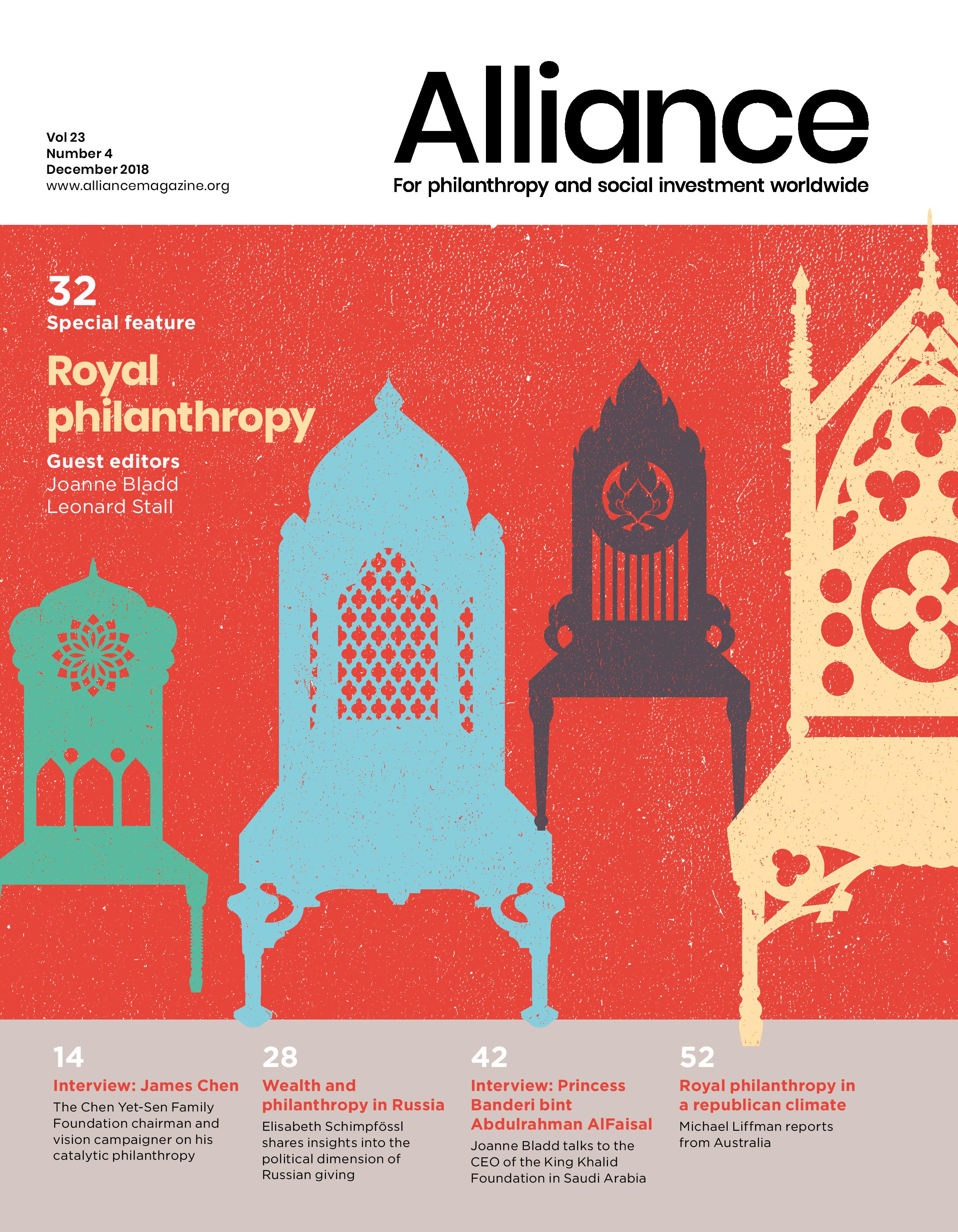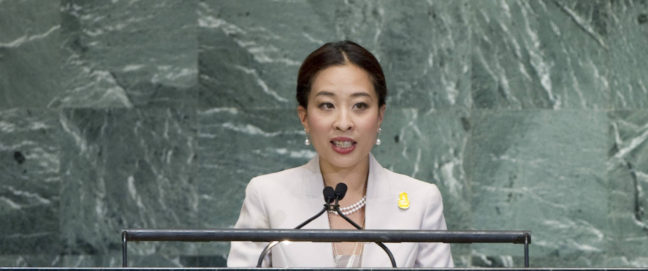Royal support can do more than simply underwrite programmes. Given commitment and knowledge, it can also lead to the creation of important initiatives
I work for Orbis, an international charity which brings people together to fight avoidable blindness. Through our network of partners, we mentor, train and inspire local teams to fight blindness in their own communities. With 253 million people in the world who are blind or visually impaired, including 75 per cent from avoidable conditions, growing the number of projects we deliver is more necessary than ever. One of our key initiatives, Qatar Creating Vision (QCV), has been made possible by royal support.
Crucially, above and beyond the immediate coverage and fundraising, royal patronage opens doors through the conversations it enables and the platform that it creates.
Her Royal Highness The Countess of Wessex has enabled us to make our presence and the work we do known and to raise much needed resources. As patron of Vision 2020: The Right to Sight, and global ambassador for the International Agency for the Prevention of Blindness, she is passionate about eradicating avoidable blindness. She has brought not only patronage, but knowledge to the cause. In her visits with Orbis to the State of Qatar, India and Bangladesh, the countess’s commitment to preventing blindness worldwide has captured hearts and minds of the community at large including business people and dignitaries.
Beyond patronage
Crucially, above and beyond the immediate coverage and fundraising, royal patronage opens doors through the conversations it enables and the platform that it creates. In Qatar, the emir, His Highness Sheikh Tamim Bin Hamad Al Thani, gives leadership to the Qatar Fund for Development (QFFD) – the country’s public development institution committed to implementing external aid projects. The fact that QFFD’s board is chaired by the deputy prime minister and minister of foreign affairs, His Excellency Sheikh Mohammed bin Abdulrahman Al Thani, is a defining feature of the organised and collaborative philanthropic platform throughout the country. In 2017 alone, QFFD funded projects worth $674 million, across more than 76 countries, focusing on various sectors including education, health, economic empowerment and humanitarian relief.
Building on the initial platform
The visits of the countess to Qatar have enabled us to build strong relationships, credibility and trust, all essential ingredients to create and implement innovative programmes. Building on her discussions about the global issues around preventable blindness with the State of Qatar, we hosted follow-up meetings and had genuine conversations that cemented friendships. This resulted in the launch of the QCV initiative, funded by QFFD and implemented by Orbis.
The work of QCV in India and Bangladesh
In India, before QFFD’s funding, there was no standardised method of delivering school eye health services that could successfully reach children in both urban and rural settings. Most school-based eye health interventions had been one-off events, largely dependent upon the availability of resources. Ensuring glasses were dispensed and worn, records kept and annual follow-ups done, was not routine practice. Through Orbis’ Refractive Error Among Children (REACH) programme, it is reducing visual impairment caused by uncorrected refractive error among school-age children in 15 districts across the country.
Since February 2018, Orbis has collaborated with local partners to provide almost 25,000 screenings, carry out 413 surgeries and prescribe 8,000 treatments.
In Bangladesh, the countess’s visits have helped charities to work closer together. Through QCV we have launched our first partnership with BRAC, enabling us to reach and provide eye care to the most marginalised. This year we expanded our work to support the Rohingya community in the camps in south-east Bangladesh and the local host community. Since February 2018, Orbis has collaborated with local partners to provide almost 25,000 screenings, carry out 413 surgeries and prescribe 8,000 treatments. The demand has been much higher than expected, so now we are working hard to increase access to primary eye care services and establish local facilities. This programme is also giving us an opportunity to develop a model for integrating primary eye care services into existing structures in an emergency/humanitarian crisis.
Assessing the royal contribution
The depth of knowledge that the countess brings is inspiring, but her most significant contribution is the ability to link the various elements necessary to create successful initiatives, not only through who she is, but also how she does it. In November last year, we hosted a roundtable discussion with the countess, Qatar minister of public health and dignitaries from various organisations. The conversation focused on the importance of educating communities about the diagnosis, prevention and treatment of eye diseases. Being able to connect the dots between high-level conversations, the charities the countess supports and the experience of seeing lives transformed, set the tone for a comprehensive effort and approach. QCV is the expression of this collective aspiration, of ministers, dignitaries, businesspeople and charities, all coming together to work towards a future where avoidable blindness is a thing of the past.
Florence Branchu is the regional head of the Middle East at Orbis.
Email fbranchu@orbis.org.uk
Twitter @ukorbis



Comments (0)